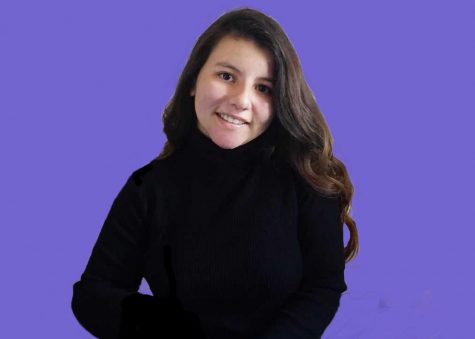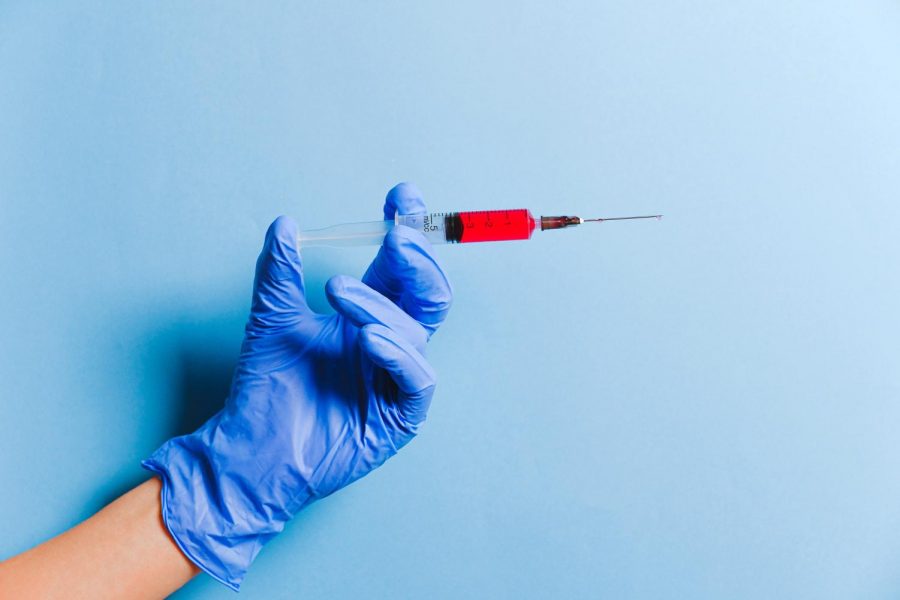Hispanics are Hesitant to Get the Vaccine
This community has the lowest vaccination rates despite being the hardest-it.
During these unimaginable times many people have faced hardships, and that is no different in the Hispanic community. Even though Hispanics have been one of the hardest-hit communities during the pandemic, there are low vaccination turnout rates among this group.
According to a study done by Harvard, 58% of Hispanics reported a loss of income due to the pandemic. Hispanics are overrepresented when it comes to COVID-19 cases, but are underrepresented when it comes to vaccination data.
The pandemic has been hard for everyone, including 16-year-old Samantha Martinez.
“Unfortunately during December, my grandfather passed away unexpectedly, not COVID related. We had to push back the funeral to the following month because of how many deaths there were (related to COVID-19),” she said.
Martinez was dealing with the grief of her grandfather when her, her mother and father tested positive for COVID-19.
“Not only did we have to prepare funeral arrangements, but we had to be by ourselves in one of the most difficult times in our lives and kinda just push through,” Martinez said.
According to the CDC COVID Data Tracker, only 10% of people who are fully vaccinated are Hispanic; that compares the 67.4% of caucasian people who are fully vaccinated. So why are Hispanics so far behind?
A part of the problem is how information about the vaccine is being distributed. Information about the vaccine in this country is in English, making it harder for Spanish speaking people to get the information. If they can read English they might not have access to it. A research study done by Deutsche Bank Research reported that only 51% of Hispanics owned a computer versus 81% of whites.
Another thing keeping Hispanics from getting vaccinated is misinformation. Some Hispanics believe that in order to get vaccinated, you need to have insurance. The New York Times said in an article that “vaccine clinic organizers report that Hispanic members of their communities, many of them uninsured, are unaware that the cost of the vaccine is free for all and have expressed concern about the cost.”
Not only are some Hispanics getting misinformation, they might be scared to get deported if they get the vaccine. In order to get the vaccine, personal information has to be given such as your name and birth date. Some undocumented Hispanics feel like the government will use that information and deport them.
In order to prevent this, President Biden said, “I want to make sure they all are able to get vaccinated and so they’re protected from COVID-19, without ICE or anyone else interfering.” He went on to say, “They should not be arrested for showing up for being able to get a vaccination.”
Another cause of a low Hispanics vaccination percentage, is that there is not a willingness. In a study done by the Kaiser Family Foundation, only 26% of Hispanics are willing to get the vaccine as soon as possible. Among those is Samantha Martinez.
“Not only is it important for the safety of ourselves, but for others as well. We really have to work together here in order to make sure we can get back to a somewhat normal life again,” Martinez said. She continued, “If we have this protection, then it is a big key in helping turn the tides. With these vaccines, we can hopefully turn this virus into just another manageable flu.”
Not everyone feels the same way as Martinez. According to the KFF, 48% of Hispanics want to wait and see how the vaccine works first. Among these people is Alexander Aguayo, 24.
“I feel like it was pushed out too fast. I feel like there wasn’t enough time to see the long term side effects. I would rather take my chances with COVID right now. I’m willing to get the vaccine in the future when some time has passed by and we see the long term effects,” said Aguayo.
According to the KFF, there are 18% of Hispanics who don’t plan on getting the vaccine at all. Some people like Emily Maynard, 20, don’t believe the vaccine works.
“I personally know two people who got both their shots for the vaccine, and three weeks later tested positive for COVID,” Maynard said. “That is why I won’t be getting the shot. Neither is my daughter and boyfriend, and even my brother.”
According to the CDC for the vaccine to take full affect, a person needs to wait at least two weeks. In rare insistence it is possible to get COVID-19 after being vaccinated due to the different strains of the virus. It is also still possible to pass the virus onto people who are not vaccinated.
For more information concerning the vaccine and COVID-19, visit the CDC website or talk to a medical professional.



